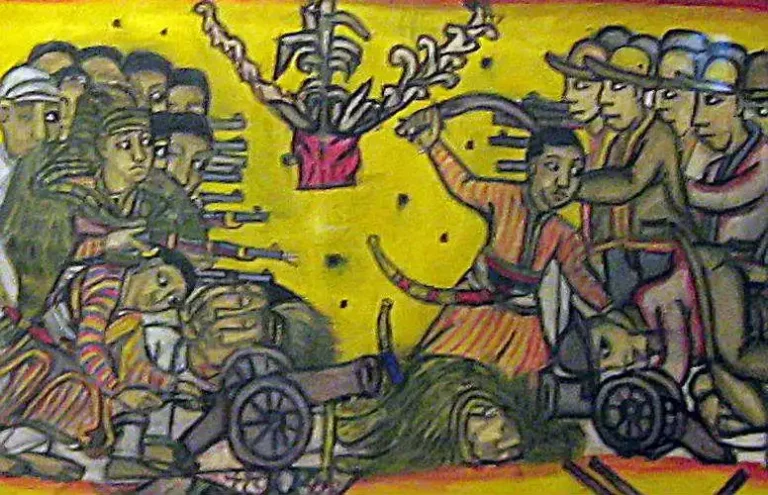The Battle of Adwa, which took place on March 1, 1896, was a defining moment in Ethiopian history. It was a battle between the Ethiopian Empire, led by Emperor Menelik II, and the Kingdom of Italy, which was attempting to expand its colonial empire into Africa. The Ethiopian victory at Adwa was a significant blow to European colonialism and a source of pride for the people of Ethiopia. In this article, we will explore how Ethiopia beat back colonizers in the Battle of Adwa.

The Context of the Battle
In the late 19th century, European powers were scrambling for control of Africa, with Italy among the nations vying for influence on the continent. The Italians began to push into Ethiopia, hoping to establish a colonial foothold in the region. However, Emperor Menelik II was determined to resist their advances and maintain Ethiopia’s independence.
The Buildup to the Battle
Tensions between Italy and Ethiopia had been building for several years before the Battle of Adwa. Italy had signed a treaty with Menelik II in 1889, which granted the Italians control over Eritrea and allowed them to establish a foothold in Ethiopia. However, the treaty was poorly translated, and the Italian version claimed that Ethiopia was now a protectorate of Italy, while the Amharic version stated that Ethiopia was merely granting Italy trading rights.
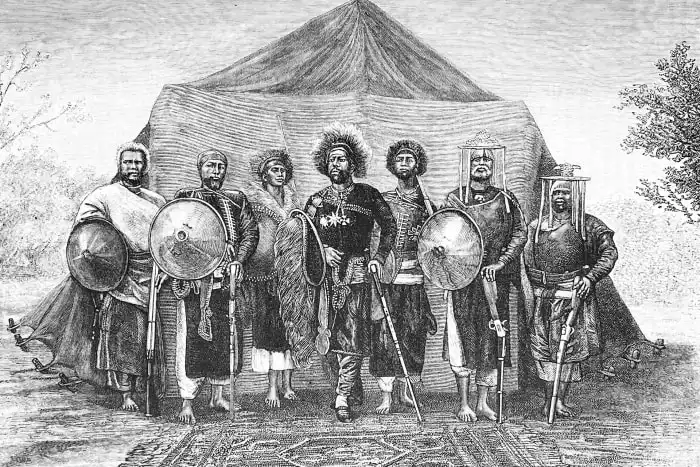
The Italian Invasion
In 1895, the Italians invaded Ethiopia, with the aim of establishing a colony in the country. However, Ethiopian forces were able to repel the initial invasion, and Italian troops were forced to retreat to their stronghold in the city of Adwa.
Preparing for Battle
Emperor Menelik II rallied his forces and began preparing for a major confrontation with the Italian army. He gathered an army of around 100,000 soldiers, while the Italian army numbered around 17,000 troops. Menelik II also secured the support of several other Ethiopian kingdoms, which sent their own troops to join the fight against the Italians.
The Battle Begins
On March 1, 1896, the Ethiopian army descended upon Adwa, where the Italian army was camped. The Ethiopians were divided into three groups, with one group attacking the Italian center, and the other two attacking the flanks. The Italians were caught off guard by the strength and determination of the Ethiopian attack and were quickly overwhelmed.

The Italian Defeat
Despite having superior weapons, the Italian army was no match for the Ethiopian forces. The Ethiopians were able to use their knowledge of the terrain to their advantage, attacking the Italians from high ground and using their cavalry to disrupt the Italian lines. The Italians suffered heavy losses and were forced to retreat.
The Aftermath of the Battle
The Ethiopian victory at Adwa was a major blow to European colonialism in Africa. It demonstrated that African nations were capable of defending themselves against European aggression and challenged the notion of European superiority. The victory also solidified Ethiopia’s independence and made Emperor Menelik II a hero to his people.
The Legacy of the Battle
The Battle of Adwa has had a lasting impact on Ethiopian history and culture. It is celebrated every year on March 1 as a national holiday, and the victory is seen as a source of pride and inspiration for the Ethiopian people. The battle is also seen as a symbol of African resistance to colonialism and continues to inspire anti-colonial movements around the world.
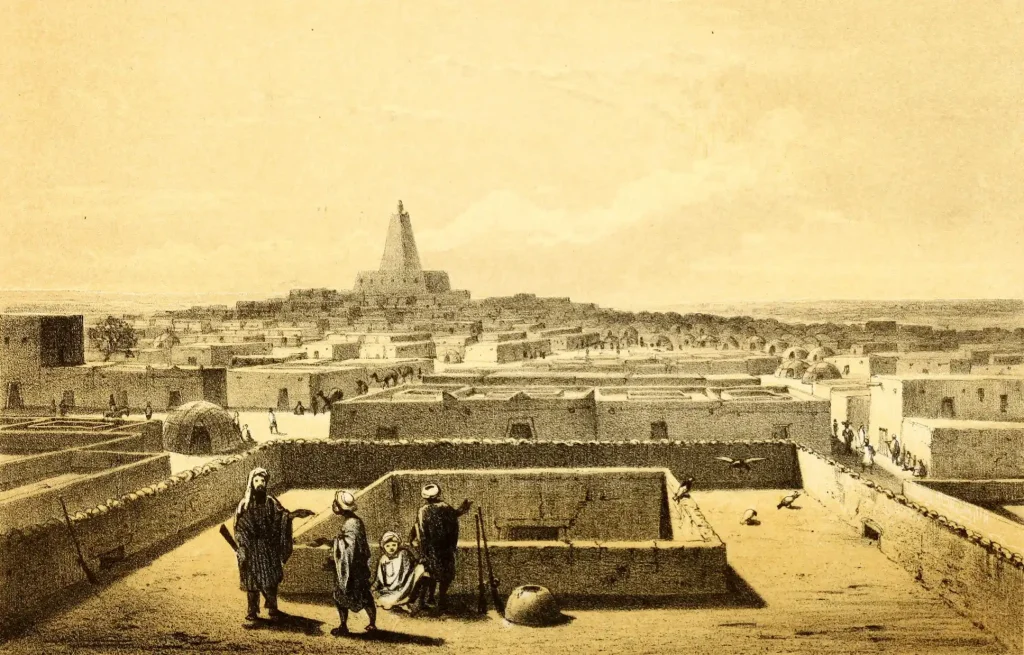
Lessons from the Battle
The Battle of Adwa holds several important lessons for us today. It teaches us the importance of unity and solidarity in the face of aggression, as Menelik II was able to rally support from other Ethiopian kingdoms to fight against the Italian invasion. It also teaches us the importance of understanding the terrain and using it to our advantage, as the Ethiopians were able to use the high ground to launch successful attacks against the Italian forces.
The Importance of Diplomacy
While military strength played a significant role in the Ethiopian victory at Adwa, diplomacy also played a crucial role. Emperor Menelik II was able to secure the support of several other African nations, including Sudan and Somalia, which sent troops to fight alongside the Ethiopians. This support was essential to the Ethiopian victory and highlights the importance of building alliances and forging diplomatic relationships to resist colonial aggression.
The Importance of Cultural Identity
Another key lesson from the Battle of Adwa is the importance of cultural identity and national pride in resisting colonialism. The Ethiopians were able to draw upon their cultural heritage and identity to mobilize their forces and inspire them to fight for their independence. This pride in their cultural identity was a powerful force in motivating the Ethiopian people to resist colonial aggression.
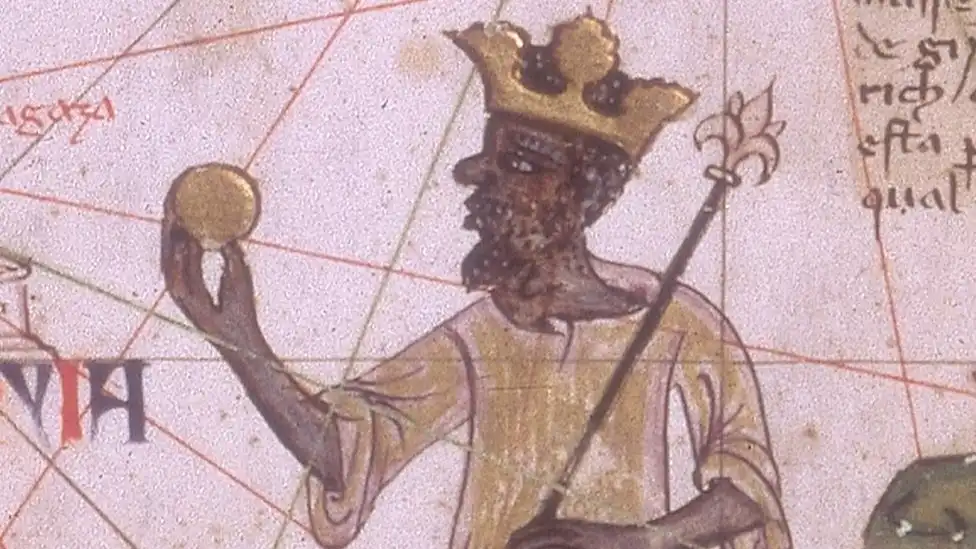
The Relevance of Adwa Today
The Battle of Adwa remains relevant today as a symbol of resistance against colonialism and imperialism. It serves as a reminder of the importance of standing up to aggression and maintaining our cultural identity and national pride. The battle also highlights the need for diplomacy and alliances in the face of aggression and the importance of understanding the terrain and using it to our advantage.
Celebrating the Victory
Every year on March 1, Ethiopians around the world celebrate the victory at Adwa. The holiday, known as Adwa Day, is a time for reflection on the importance of the battle and its significance for Ethiopian history and culture. It is also a time to celebrate the resilience and strength of the Ethiopian people in the face of adversity.
Honoring the Heroes
The Battle of Adwa produced many heroes, including Emperor Menelik II and his wife, Empress Taytu Betul. Both were instrumental in organizing and leading the Ethiopian forces to victory. Other notable heroes include Ras Makonnen, who led the Ethiopian cavalry, and Balcha Safo, who commanded the Ethiopian center. These heroes are celebrated and honored by Ethiopians to this day.
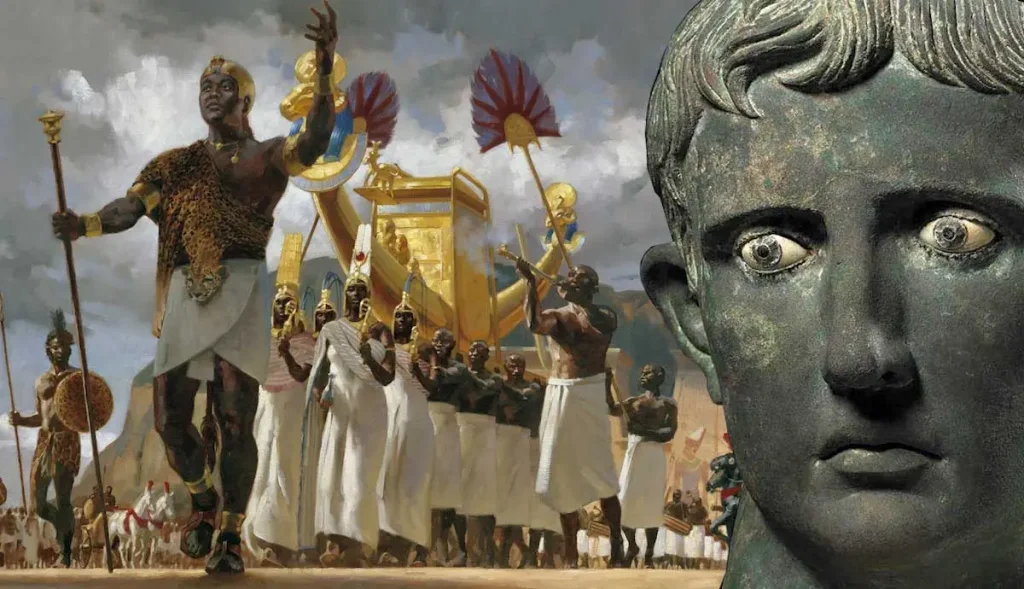
Conclusion
The Battle of Adwa was a defining moment in Ethiopian history and a symbol of resistance against colonialism and imperialism. The Ethiopian victory at Adwa demonstrated the strength and resilience of the Ethiopian people and challenged the notion of European superiority. The battle holds important lessons for us today, including the importance of unity, solidarity, diplomacy, cultural identity, and national pride in resisting aggression. The celebration of Adwa Day serves as a reminder of the heroism and sacrifice of those who fought for Ethiopian independence and inspires us to continue the fight for justice and freedom today.
